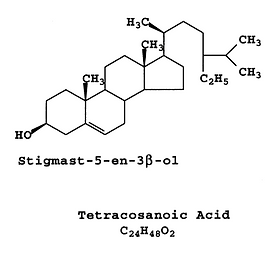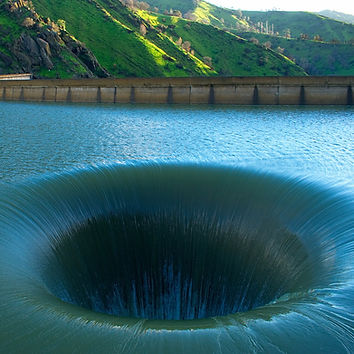SPECIALIZATIONS
The graduate program in Hydrologic Sciences is a unique interdisciplinary program designed to broaden the skills and knowledge of the natural science or engineering student interested in the occurrence, distribution, circulation and properties of water on earth. Because of its ubiquity and importance to physical, chemical and biological processes, Hydrologic Science interfaces with the geologic, atmospheric and oceanic sciences, as well as, engineering and other applied physical sciences. The program has three degree options at the M.S. and Ph.D. levels.
Within each option, students specialize in one of five areas of emphasis--earth surface processes, hydrobiology, hydrochemistry, physical hydrology, and water policy & management--or develop a program that meets their educational goals.
EARTH SURFACE PROCESSES
The surface hydrology specialization considers the study of water and pollutant transport in the lower atmosphere, over the earth's surface, into the ocean, and through near-surface soils. Possible coursework encompasses the physics, chemistry, and selected biological aspects of surface waters and their interaction with subsurface waters and coastal ocean waters.
Characterizing, modeling, and controlling surface hydrologic systems is the primary thrust of work in this research area, with particular emphasis on discovering relationships among processes at varying scales of time and space and on quantifying effects where information is uncertain. Predicting the transport and fate of contaminants in lakes, streams, and estuaries/bays is also a vital focus. Because surface water flows are frequently transient and usually follow irregular channels, computational representations are used to develop information that can help, for example in predicting the evolution and effects of flood, the transport of waste heat from power plants, and the transport of sediment, sewage plumes, or other contaminants in water bodies. The research includes development of numerical finite element and finite difference models of flow and contaminant transport in water bodies, including the effects of turbulence and flow stratification. Remotely sensed data enriches the input to hydrologic models by improving the spatial and temporal resolution of data. More physically based models formerly applicable to point-source and small-scale agricultural sites can now be adapted to large watersheds.
Another research focus in this study area lies in evaluating ecosystem function and stability of wetlands in the landscape defining resource efficiency and resilience to changing hydrologic or water quality conditions, particularly those associated with urbanization. UC Davis researchers are developing a watershed field monitoring system to track mass fluxes of water and nutrients in watershed ecosystems. Wetlands are the focus of the monitoring system because they accumulate the impacts on the watershed. In collaboration with researchers from the Environmental Studies and Civil and Environmental Engineering Departments, UC Davis hydrologists are also studying constructed wetlands wastewater treatment systems as a way of understanding wetlands ecosystem function in controlled systems.



HYDROBIOLOGY
Hydrobiology also termed hydroecology is the study of the biological communities inhabiting surface and subsurface waters. The discipline encompasses study of physical, chemical, and biological factors governing the structure and function of communities having microbial, plant, and animal components. In addition, hydrobiology studies the impact of human activities on biological communities and the role of biota in the recovery of disturbed ecosystems. This option is appropriate for students who wish to study aquatic biology and ecology, wetlands ecology, surface water quality, biological remediation of contaminated surface and groundwater, restoration and reclamation of aquatic habitats, soil-plant-water relationships, and ecotoxicology.
Because of the critical problem of biosphere degradation resulting from human activity, several scientific areas have emerged at the forefront of hydrobiological research. Two of the most important research areas are environmental monitoring and bioremediation. The challenge is to understand how the total ecosystem functions in both natural and human-managed landscapes and how interactions between biota and their environment create and modify ecosystem structure and function. Gaining a better understandingat scales ranging from the biochemical and molecular to the community levelof the effects of environmental and anthropogenic stresses on biota and how biota modify their environment in response to stress is essential to developing and applying remediation and restoration strategies.
HYDROCHEMISTRY
Hydrogeochemistry examines the interactions between water and the geological, chemical, and biological environment. This study area provides students with a quantitative understanding of chemically based processes in hydrogeochemical environments and complementary physical and biological processes and conditions. Students may specialize in the inorganic chemistry of natural systems, in the transport of organic contaminants, or in a combination of the two areas. Those interested in the inorganic aspects may study the behavior of inorganic chemical species in water and the dissolution/precipitation reactions occurring during mineral-fluid interactions in the subsurface and atmosphere. Course topics include kinetics and equilibria of geochemical reactions, the movement of isotopes, and soil chemistry. Students may also study the transport, transformation, and degradation of organic chemicals in the hydrosphere with particular emphasis on the subsurface environment. Current research in this area includes developing models for understanding the chemical equilibrium of hypersaline systems, the reactivity and mobility of trace elements, the transformation and transport of pesticides and other organics, and interrelationships between mass transfer and reaction processes.




PHYSICAL HYDROLOGY
Physical hydrology is a broad discipline that involves the study of ground and surface water kinetics and the transport of contaminants through these systems. Discrete field measurements (e.g. - river velocity, channel morphology, depth to water table, aquifer properties, etc.) often tell an incomplete story of the dominant hydrologic processes occurring within a watershed or groundwater basin.
To better understand and effectively monitor and manage these systems, it is often necessary to build numerical (computer) models to represent them. These can range from simple models with a few parameters that can be run on a normal desktop computer in a matter of seconds, to large, complex models that take days or weeks to run on a supercomputer. Students may specialize in the monitoring and modeling of surface and groundwater systems, which includes water budgeting, the development of numerical models, and modeling the flow of water and transport of contaminants.
Course topics include geostatistics, numerical modeling of water systems, sensitivity and uncertainty analysis, groundwater hydrology, soil physics, contaminant transport, and more.
WATER POLICY & MANAGEMENT
Managing and allocating water to satisfy competing, ever-growing and increasingly diverse water uses calls for a fundamental understanding not only of the physical, chemical, and biological constraints on surface and subsurface water, but also of the socio-economic forces at work. The issues extend beyond economic costs and benefits to questions of environmental degradation and risk, the implications of successive and conjunctive uses of water, and conflict resolution strategies. Water resources managers must be knowledgeable in the economics, politics, sociology, and law of water management as well as in the traditional water resources fundamentals of hydraulics, hydrology, water quality, numerical methods, probability, and environmental engineering.
The water resource management curriculum at UC Davis reflects this interdisciplinary need by incorporating a mix of quantitative and qualitative approaches to defining analyzing, and resolving water resource problems, with a particular emphasis on quantitative management, conflict resolution strategies and risk assessment.











